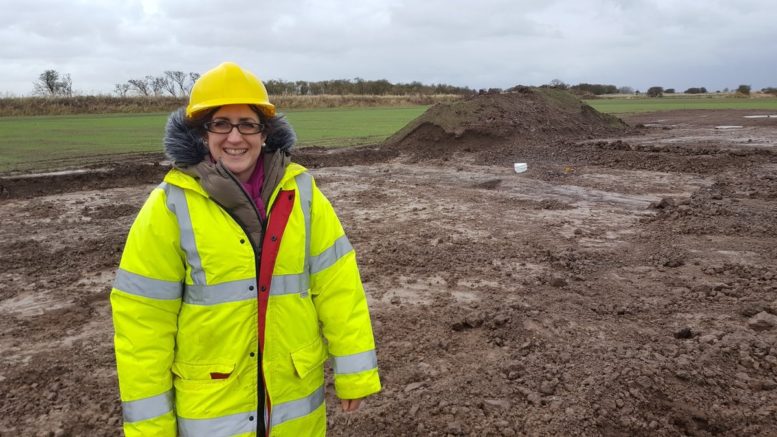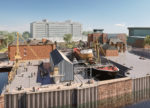You may have noticed in the past few years, Hull has seen its biggest physical transformation since the Second World War.
Excavation sites at the Princes Quay footbridge and South Blockhouse sites are now a familiar sight for residents and visitors.
With the city’s rich history as a medieval European trading port spanning back centuries, any proposed development requires careful assessment by archaeology teams.
This can be daunting for developers, says Lucie McCarthy, Hull City Council’s principal archaeologist, who is tasked with smoothing this process.
But – as Humber Business Week begins – Lucie says there is no reason for archaeology to slow the city’s economic regeneration.
“Archaeology is definitely seen as a barrier to development, but it really shouldn’t be if it is done correctly,” she said.
“In Hull, perhaps we are better at understanding the importance of development, and that change is necessary – and good.
“It can either be viewed as a waste of time and money with no return for the developer, or that it will delay a development if something important is found. For a developer who hasn’t encountered archaeology before, it can be off putting and daunting, but this is where we come in.
“We offer a free pre-application service to developers where we will assess a site location against current archaeological knowledge of the area.

Site preparation at Hull’s South Blockhouse.
“We consider previous land use, previous development and look at anticipated depths that archaeology may be encountered at, whether there is potential for archaeology.
“We then offer the advice as to what archaeological work would be required either to support a planning application – for larger sites in the core of medieval Hull – or the likely type of work that could be secured by a planning condition. We always aim to ensure that advice is proportional to the impact that a proposed development may have.
The archaeology team also recognise that there is huge public interest in archaeological excavations and work with the archaeologists and volunteers to publicise when excavations are happening.
Hull’s public realm work in 2016 uncovered the old Prudential building, bombed and demolished during the Second World War.
Until recently, you could still smell the smoke on the artefacts.
The excavation also demonstrated that no bodies were within the cellars.
“We have the Historic Environment Record which is the collection of all known archaeological sites, finds, listed buildings, scheduled monuments within the Hull and East Riding boundary,” said Lucie.
“We use this as our evidence base. It is open to the public free of charge and we offer a commercial service to developers and archaeological contractors.
“If archaeology is considered at an early stage, it does not impact upon the timetable of a development.
“For example, the proposed Arco site at Blackfriargate, we worked with the developer Wykeland and their archaeological consultant LanPro to develop an archaeological strategy for the site. The work demonstrated that there was potential for waterlogged medieval archaeological deposits to be present within the site.
“The cost of excavating the site would have been prohibitive to development, therefore we developed a strategy to ensure that preservation in situ was achievable using piles.
“Archaeological excavation of three key areas within the site have provided evidence of medieval and post medieval occupation. We were able to overcome concerns raised by Historic England.
“In essence, it is about being pragmatic. I enjoy working on sites alongside developers to overcome barriers. Archaeology does not stop development – if it is done correctly. It can also help with place shaping etc.
“The best way to deal with archaeology is to deal with it before development commences, therefore no delays to plan nor unnecessary costs.
“I would say don’t ignore our advice, we are here to help and will guide you through the process. We are impartial and only advise what we think is necessary.”




